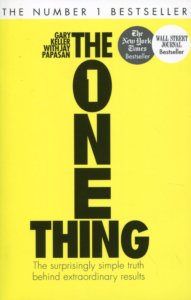
Julian Northbrook sends daily email tips for speaking better English – Click the button on the right, sign up, and you'll get a new email every day packed with ideas and tips for speaking better English.

Julian Northbrook sends daily email tips for speaking better English – Click the button on the right, sign up, and you'll get a new email every day packed with ideas and tips for speaking better English.
One of my coaching clients asks: “I don’t want to just speak Okay English… how to speak English very well?”
Great question.
And one I love. In Doing English, I don’t just want you to speak English. I don’t even want you to speak English well. I want you to speak English VERY well — I want you to be the best of the best, the elite of the English-speaking world.
That’s the level I aimed for with my second language.
And it’s what you should aim for, too.
In this article, I’m going to give you two tips. They won’t be what you expect. But it’s really, really important stuff. And if you take my advice…and implement it, without just saying, “Oh, that won’t work…” you WILL get better.
It’s not enough simply to be good at English in the modern world any more.
Just being OKAY at English isn’t good enough.
You’ve got to be the BEST.
… and this is what this article is about.
Not just being “good” at English, but being OUTSTANDING.
Over the years I’ve developed my methods working alongside my coaching clients, as well as learning languages (primarily Japanese) myself.
Well, when it comes to improving your English speaking skills, here are the two biggest changes I recommend you make. They might seem a little unconventional (they’re certainly not traditional English learning tips) but they work, so pay attention.

In The One Thing, Garry Keller talks about how the most successful people in the world all had a single person in their lives — a mentor — who pushed and supported them to reach the top. For you, it doesn’t necessarily need to be someone who’s there to help you but rather someone whose way of speaking you admire, so you want to be able to speak the way they do.
Just saying that you want to speak like a native speaker isn’t enough.
A lot of native speakers have really bad communication skills.
Pick someone who speaks English well.
An effective communicator, not just someone who is speaking English fluency (which all natives can do…).
You will never be better than the person you model yourself on…so go on and pick someone at the top. The best. The OUTSTANDING person among all the mundane fools.
This video goes into more detail on this:
Now, what’s the second part of speaking English well?
The American Entrepreneur Jim Rohn famously said that we become the average of the 5 people we spend the most time with. This is important. Because it means if you are spending time with people who are crap at English, hate English and don’t like English…
You’ll become the same.
If, on the other hand, you are always with people who love English, are great at speaking English and are already successful people…
YOU’LL BECOME THE SAME.
Choose your friends and the people you spend time with carefully.
This video goes into more detail:
Make both of these changes in your life…
… and you’ll see rapid progress.
If you want more help from Julian to master English, FAST, click here watch my free training where I’ll share with you the 5 key changes you need to make to speak better English.
![]()
Julian Northbrook
If you found “How to speak English very well?” useful, share it:
Polite English versus Casual English.
Formal English versus Informal English.
Are these the same thing?
Watch this video to find out:
No. “Polite” and “formal” are not the same—despite what a lot of people may think. And “casual” and “informal” aren’t the same thing, either.
Also: One conversation may have parts that are formal and other parts that are informal.
The way native speakers use language is quite complicated. And one thing they do is mix up the level of formality at different points in a conversation to do different things.
It’s important to know when to use what kind of language.
We talked about this in last week’s Doing English PLUS lesson. And this week we’re also going to look in detail at the polite/casual formal/ informal balance. Pay close attention to the level of formality each speaker uses AND to the way they shift into and out of formal or informal language at certain points in the conversation.
Here’s a link to join the programme.
This lesson is part of the Lesson Content for May 2016. But be warned: this is only available to new members until the end of this month!
Cheers,
Julian